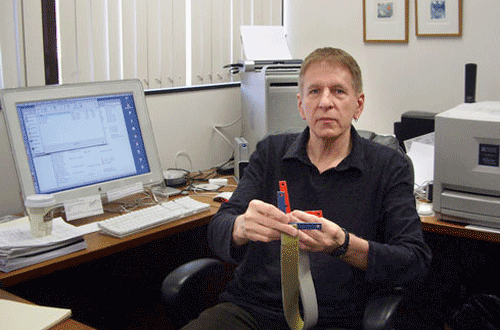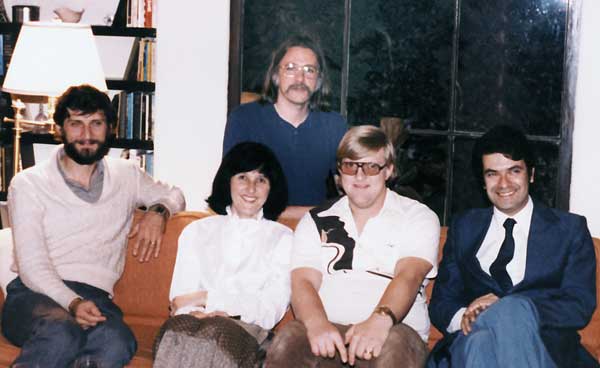Curt Wittig

I was born and raised on the near north side of Chicago — brought nothing but misery into the lives of my teachers, and caused my parents to age at a quickened rate. Due to a clerical error, I got into the University of Illinois, first at Chicago (Navy Pier), then Urbana-Champaign, ultimately receiving the PhD in EE in 1970. Postdoctoral work (EE at USC, Chemistry at Cambridge (UK) and Berkeley) was followed by a faculty appointment in 1973 at USC in the EE Department. These were wild, unpredictable times that tested one’s mettle, so to speak. It is a miracle things worked out as well as they did. I was treated well in EE (reaching the rank of Professor in 1979), but with research interests becoming progressively more estranged from mainstream EE, and with joint appointments in Chemistry and Physics, I transferred to the Chemistry and Physics Departments in 1981, settling eventually in the Chemistry Department, where I have specialized in Physical Chemistry (Chemical Physics) ever since.
As my research interests evolved, so also did the composition and personality of my group. In the seventies, the graduate students had backgrounds in EE and Physics, whereas since the early eighties they have come from Chemistry and Physics. I like theoretical stuff and try to do some pencil-and-paper theory on the side. Though I respect large-scale computational work, I am neither inclined toward, nor skilled at, this type of research. However, many of my students find it to their liking and have benefited greatly from such studies, often through collaborations with computational chemistry groups. We work on what appears at first glance to be an eclectic mix of projects, but upon further examination these projects are recognized as remarkably inter-related. Regardless of the particular project, students are taught to deal with the fact that they are responsible for their education at the PhD level and beyond. I can (and do) help, but no one benefits from a training in which the great master dictates all the moves. In other words, it is all right to break equipment and err in judgment, as long as one learns from such mistakes and they do not become a habit. The idea is to become as self-reliant and productive as possible, given the limits imposed by personality and accessible resources.
In addition to research and teaching, a significant amount of time and energy has been put into what is called service: Section Head of Physical and Theoretical Chemistry, Department Chair, graduate student committees, Director of the Center for the Study of Fast Transient Processes, numerous renovations throughout the department, and so on. The list seems endless.
My wife and I live in Santa Monica, with our two bunnies Monique and Bleecker. We like to travel and have enjoyed sabbaticals in interesting places: Boston, Cambridge (MA), Oxford, London, Jerusalem, and New York. Likewise, we encourage our students to travel, work with focused high intensity, read scientific books rather than attempting to learn via Google, and in general subscribe to an intellectual lifestyle.

Some time ago...
